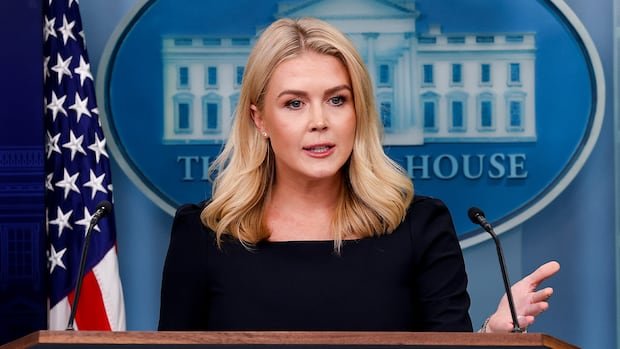California Gov. Gavin Newsom said Wednesday that his state will file a lawsuit challenging U.S. President Donald Trump’s authority to impose sweeping tariffs that have set off a global trade war.
The suit will argue that Trump’s use of the International Emergency Economic Powers Act to impose tariffs on Mexico, Canada and China, or a 10 per cent tariff on all imports, is unlawful. The act enables a president to freeze and block transactions in response to foreign threats.
Trump has offered many justifications for increasing tariffs, including that they are designed to spur U.S. manufacturing and stop the flow of illicit fentanyl into the country.
California’s move follows rapidly changing tariff plans by the Trump administration. It is the first state to take legal action over the tariffs, which have been previously legally challenged in suits filed by law firms representing business owners and civil liberties organizations.
Newsom says the tariffs in effect have resulted in inflated costs and billions of dollars in damage in California, which has the largest economy among U.S. states and is a massive exporter.
“President Trump’s unlawful tariffs are wreaking chaos on California families, businesses and our economy — driving up prices and threatening jobs,” he said in a statement. “We’re standing up for American families who can’t afford to let the chaos continue.”
As with Democratic lawmakers on Capitol Hill, California is arguing that congressional approval was required for the tariffs. Senate Democrats were joined by four Republicans in a symbolic vote rebuking Trump over the tariffs earlier this month, but Trump loyalists lead the House of Representatives, making a similar vote there unlikely.
Trade with Canada impacted
The state will ask the court to immediately block the tariffs in the lawsuit being filed in the U.S. District Court for the Northern District of California,
Answering a question from CBC News, the White House press secretary said U.S. President Donald Trump still thinks Canada should become the 51st state, but there may be ‘flexibility’ when it comes to tariffs on Canada’s auto sector.
The announcement on Wednesday comes days after Newsom asked countries to exempt the state’s exports from retaliatory tariffs and measures, stating, “California is not Washington, D.C.” No deals have yet been announced..
California, which boasts its economy in terms of gross domestic product is only smaller than a handful of countries, borders Mexico and also enjoys a significant trade relationship with Canada. Trump has expressed grievances about the updated trilateral trade agreement he signed off on in 2019 with Mexico and Canada.
The Consulate General of Canada estimates that there is $53 billion US of two-way trade annually between Canada and California, and that there are nearly 2,000 Canadian-owned companies operating in the state, with about 90,000 total employees.
California currently exports about $2 billion more in goods and services to Canada than it imports, the consulate says, but the strained relations as a result of the tariff threats from Washington have seen California wineries and alcohol suppliers punished as a result, with products wiped from the shelves of liquor stores in several provinces.
California is a farming powerhouse, with many of the nuts, fruits and vegetables the state grows destined for other countries, while it is a significant importer of Canadian petroleum.
Newsom also beckoned Canadians to the Golden State as part of a newly launched tourism campaign.
“Our inclusive values, love of natural beauty and passion for innovation bind us, and we look forward to welcoming you back with the same community spirit you’ve always shown us,” Newsom says in the ad.
U.S. border data shows that nearly 900,000 fewer people travelled from Canada to the U.S. in March, traditionally a busy month for cross-border travel. The drop has pushed the governor of California to lobby for Canadians to come back to his state.
California estimates Canadians are the second-biggest international spenders for its tourism economy, with Newsom stating that two million Canadians visited last year. But state tourism officials say visits by Canadians dropped 12 per cent in February compared with the same month last year.
Domestically, the California action stands to mark a resumption of the tensions between the state and the Trump administration. Conflicts dating back to the first Trump administration have arisen over automobile emissions and the environment, reproductive rights and access to abortion, and wildfire prevention and causes.





